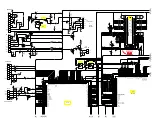
GLOSSARY
GLOSSARY-2
XEROX DOCUPRINT NETWORK PRINTER SERIES INSTALLATION PLANNING GUIDE FOR MODEL 92C NPS
binary digit (bit)
In the binary numbering system, either of the characters 0 or 1. The
bit is the basic unit of information with which a computer works. It can
take the form of a magnetized spot, an electric pulse, a positive or
negative charge, etc. A number of bits strung together represents a
character to a computer.
Multipliers are:
1 byte = 8 bits
1 kilobyte (KB) or 1,024 bytes = 8,192 bits
1 megabyte (MB) or 1,048,576 bytes = 8,388,608 bits.
Computer space equivalents are:
1.5 KB = about 1 single-spaced typed page
30 KB = about 20 typed pages
150 KB = about 100 typed pages
bitmap
Electronic definition of an image, comprised of a matrix of picture
elements (pixels or dots), where a bit value of one means that the
picture element is imaged, and a bit value of zero means that the
picture element is not imaged. The number of picture elements in a
square area is a function of the display device resolution.
bit mapped
Display image generated bit by bit for each point or dot. A software-
driven scanner is used to create characters and/or graphics.
bits per second (bps)
In serial communication, the instantaneous bit speed with which a
device or channel transmits a character.
blocking
Process of combining two or more records into a single block of data
which can then be moved, operated upon, stored, etc., as a single
unit by the computer.
block length
Number of characters or bytes contained in a block of data (the block
is treated as a unit within the computer). Block length is usually
invariable within a system and may be specified in units such as
records, words, computer words, or characters.
boot
To load a program’s initial instructions of a program into the
computer’s memory. These instructions then direct the loading of the
rest of the program. Booting may require entry of a few commands at
the keyboard or the flip of a switch to begin the process.
break page
See
header page
buffer
Compartment of memory in which data is stored during transfer from
one device to another. Useful for (1) accumulating data into blocks
before storage or processing, and (2) for adjusting differences of
speed between devices, or between a device and a communicating
facility.
bypass transport
Optional module that moves paper from the printer to a finishing
device.
















































